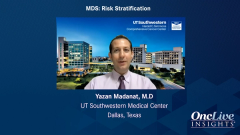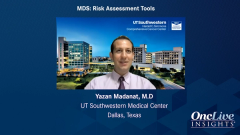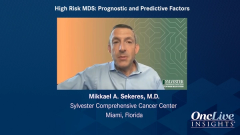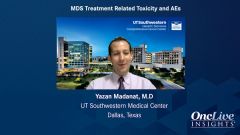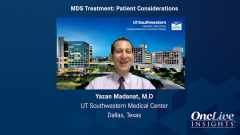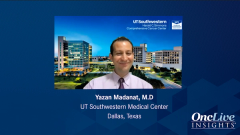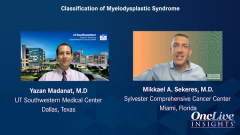
Unmet Needs in MDS
Yazan Madanat, MD, and Mikkael A. Sekeres, MD, highlight unmet needs in the treatment of patients with high-risk MDS.
Episodes in this series

Mikkael A. Sekeres, MD: Meaningful assessment of quality of life is an unmet need in MDS [myelodysplastic syndrome]. What do you think are other unmet needs in higher-risk MDS?
Yazan Madanat, MD: Higher-risk MDS as an entity is an unmet need for sure. As you’ve mentioned, the quality-of-life questionnaires have a lot of data to them, but when do we get them? What’s the right time to use these instruments? Having something more novel and better technology to have continuous monitoring where patients could enter data and watch these things more closely will be very helpful. From what’s been reported in smaller studies, in HMA [hypomethylating agent] therapy, using it in lower-risk disease had no impact on quality of life. Whereas using it in higher-risk disease had improved quality of life in terms of the assessments they used in those studies. With lenalidomide, the data are mixed between single institutional studies and some other randomized trials where the randomized, like the MDS-004 and MDS-005 studies, transfusion independence was a quite important end point that correlated significantly with improvement in quality of life.
Is it the transfusion independence? Is it getting to remission for those with higher-risk MDS? What is it exactly that helps those patients live better? It’s definitely an area of unmet need to clarify how those patients benefit from therapy the most. But also, post-HMA therapy, we have nothing approved for patients with MDS. That’s a huge area of unmet need. Clinical trials have lagged behind in showing any improvement in responses or survival for those patients, because most of the targetable mutations that have been approved for AML [acute myeloid leukemia] in that setting are quite rare in MDS. As a result, expanding the use of those medications to patients with MDS has lagged behind.
Transcript Edited for Clarity


